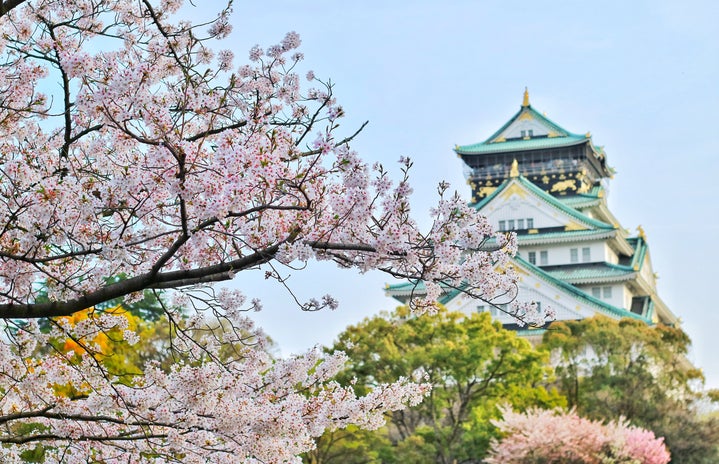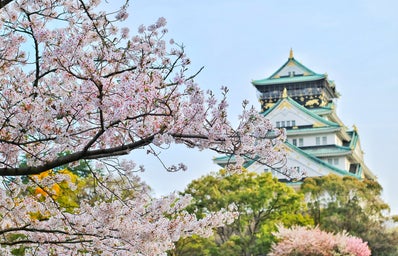Retrieved from Pinterest
After mass success over the last decade, broadcasting stations in Korea are facing a rating crisis. Last year, over 160 dramas were produced, because of that, there is a huge competition between stations to bring back drama watchers to boost their ratings. But… What could be the problem?
Korean dramas, also known as K-dramas, are television series created in South Korea. Their popularity has grown over the years thanks to their storylines and the accessibility of the content. Thanks to different platforms, such as Netflix, Disney+, and Hulu, more stories are produced and shared globally. Also, dramas and movies have received international attention and awards, such as Squid Game (Netflix Series, 2021), and Parasite (movie, 2019). However, not every single drama or movie gets the attention of the public. No matter how big their cast is, they don’t get recognized because there are different factors that affect the storyline. As a K-drama watcher for 10 years, here is a list of 5 reasons why I believe the ratings are decreasing.
Spoiler Alert: This article reveals plot details about different Korean Dramas.
- Realistic Endings
-
Retrieved from Pxfuel
As an avid K-drama watcher, I have seen a lot of dramas over the years. However, during 2022 and the beginning of 2023, realistic endings have been an epidemic. I have seen TikTok creators talking about the “realistic” endings and the comment sections are full of those comments. An example of this is Twenty-Five Twenty-One (TvN, 2022). Our main characters, Na Hee Do, a fencer, and Baek Yi Jin, a reporter, are a couple, and we see how their romantic story started and ended. In episode 14, Baek Yi Jin tells Na Hee Doo, “congratulations on your wedding.” Many viewers were in shock to hear that sentiment because, until then, everything in their relationship was “dreamy.” We then learn that they broke up because the distance between them caused miscommunication and misunderstandings. The title of the drama represented the age when they broke up, he was twenty-five and she was twenty-one. Watchers hoped that the main couple would end up together, but it was nothing but a bitter ending. This created a space for small debates on different social media platforms. For example, the TikTok creator @allkdrama discusses how she does not have issues with realistic endings but the secondary couple has a perfect/fantasy ending. While reading the comment section, you can see how viewers are not liking this trend. User @thatchildbornonthe13 commented “honestly, the world is a mess already. The whole point in why movies and series were invented was for the sake of escapism…I want happiness!!!” User @nikki._.2478 also expressed her frustration by commenting, “I mean if all of the rest of the episodes are ‘unrealistic’ I feel like the ending shouldn’t either.”
- Open Endings
-
Retrieved from Wallpaper Access
One thing is the realistic endings, but open endings are worse. After spending 2-3 months watching a drama live, the writers give the series an open ending that, more often than not, comes out sloppy and incomplete. These dramas leave you wanting for more and with lots of questions. The TikTok creator @beeingmegz posted a video using Miley Cyrus’ “Twinkle Song” to share her opinion. In the caption she wrote, “but honestly sometimes they give an ‘unfinished’ feeling…Am I happy? Am I sad?” The user @xcristalenax agreed and commented “ahh I know, I hate it soo much lol. I search the internet to find theories until I accept one as the real ending.” This reminded me of Record of Youth (Netflix, 2020) which had an open ending. Sa Hye Jun, an actor, and Ahn Jeong Ha, a makeup artist, are in a romantic relationship. Sadly, Hye Jun’s career is at risk because of false scandals and Jeong-Ha wants to break up with him even though she “still loves him.” Hye Jun had painted sneakers for Jeong Ha as an anniversary gift and, coincidentally, they broke up the day he gifted them to her. At the end, the protagonists meet in a park and she is wearing those shoes. Which leads the watcher to think “Are they together again?” “What was the main purpose of this story?”
- Unnecessary plot twists
-
Retrieved from Soompi
If there is anything more annoying than an open or realistic ending, it is when the drama has an unnecessary plot twist. Some dramas have different sub-genres, for example, we can have a main couple with a romantic love story but at the same time they are trying to catch a serial killer or a stalker. Those storylines are explained throughout the episodes and the viewers formulate their own theories about who is the killer or who is the stalker. Some viewers enjoy creating theories and interpreting clues the director and screenwriter have provided. But that is not what happened with DoDoSolSolLaLaSol (KBS, 2020)…This story has possibly one of the worst and most confusing plot twists I have ever seen. The main protagonists are Go Ra Ra, a pianist, and Sunwoo Joon, a part-timer; they meet at a piano academy called LaLaLand. In each episode, we learn new information about their relationship, an admirer that Go Ra Ra has, her stalker, and Sunwoo Joon’s storyline and his mysterious past. Everything was “okay” until the last few episodes. Our main protagonist, Sunwoo Joon, is suddenly sick with cancer, and we learn that he died. Every fan was heartbroken upon seeing the scene and how we are not going to have cute moments or a good ending. Then we see that he did not die… In fact, he pretended to be dead for 5 years. Yes, you read correctly. FOR FIVE YEARS, he pretended to be dead and then came back to his girlfriend like nothing happened. Apparently, he decided that was the perfect way to make Go Ra Ra move on and not worry about him while he was sick. On the K-drama’s mydramalist.com page, we can see the reviews of different users. User JoJo called the drama ‘No NO NO NO La La NO’. She shared, “If someone I loved pretended to be dead for 5 yrs and suddenly appeared in front of me, I wouldn’t even want to look at their face.” One thing I liked about her review was that she said, “I can’t stand by this drama anymore. The ending message is very damaging to those suffering from any sort of illness. I’m not even going to speculate about the ending. It doesn’t matter. It is what it is. And it doesn’t do it for me.” Some people did not like the ending, while others made their own theory about how “everything was a dream” and Go Ra Ra imagined Sunwoo Jun and had her perfect ending.
- Stereotypes and Racism
-
Retrieved from Sportskeeda
This topic is the most sensitive one. Since K-dramas have reached overseas audiences, they have also reached international viewers. In some dramas, we can see different representations of various cultures that have an influence on the storyline. However, there are some dramas that show some harmful stereotypes about different cultures. For example, Sh**ting Stars (TvN, 2022) included a stereotype about Africa. This drama is about the entertainment industry and the people that work behind the cameras. In the drama, the actor, called Gong Tae Sung (Kim Young Dae), was sent to Africa because he wanted to maintain a good reputation. For that reason, he began to dig wells in Africa to obtain “clean water.” You may ask, what is the problem? The program misrepresented Africa as a country instead of a continent and when they showed the scenes in “Africa,” “the Circle of Life ” from The Lion King soundtrack was played and there was a strange yellow filter on the shots. Judy Bokao explains that the technique of the yellow filter is often used in Hollywood films when portraying foreign places, including Mexico, India, and Africa, as “less fortunate,” “dangerous,” and “underdeveloped.” Furthermore, they represented Gong Tae Sung as their savior or a god, since he helped obtain clean water. This scene wanted to represent Africa as a place that needs help and is undeveloped, which is a harmful and incorrect stereotype. Upon seeing those scenes, many viewers decided to stop watching the drama and boycott it. Before you say maybe it was only Africans that decided to boycott it, you are wrong. Many netizens from different countries expressed their disgust at that portrayal of Africa. Sadly, this was not the first, nor will it be the last time this situation has happened. International viewers are not happy with how their cultures and countries are being portrayed.
- Overuse and saturation
-
Retrieved from Reddit
Some tropes in Korean dramas tend to be similar or even identical. I know this is not exclusive to Korean dramas, but there is a trend happening in TikTok talking about how they are the same. For example, the TikTok creator @luckyitamhina captioned her video as “‘not all romance kdrama are the same’ also kdrama.” In that video with 1.5M likes, she exposed how dramas are basically identical. Netizens in the comment section began naming different dramas and adding some details like “they met when they were kids” or “car accidents.” One picture in the video presented the famous line when the main couple were looking at fireworks or the sky. The female protagonist says ‘it’s really pretty’, looking at the sky, and the male protagonist says ‘yes, very pretty’, referring to her. Those scenes are very predictable, to the point where some viewers are annoyed by the cliché line. Not only are tropes and lines overused, one main problem is the saturation of genres. For example, in 2022, the majority of the dramas that aired were located in the courtroom discussing themes like crimes, achieving justice, corruption, and revenge. There were not many romance dramas which resulted in netizens moving to Chinese Dramas.
- (BONUS) Dividing the drama
-
Retrieved from allkpop
Korean dramas are normally 16 to 20 episodes and approximately 60 minutes long each. There are a few exceptions, for example Squid Game (Netflix, 2021) only has 9 episodes. There is something particular about the dramas as well. They have time slots most commonly once or twice a week where all the episodes are uploaded at once to the platform. Nowadays, there is a trend where the dramas are divided in two parts. One example of this trend is The Glory (Netflix, 2022). This drama has 16 episodes but was divided into two parts with eight episodes each. Moon Dong Eun, the protagonist, planned her revenge against her highschool bullies for 10 years. The first part of this drama was released on December 30, 2022. However, the second part of this drama was released on March 10, 2023. According to an article made by allkpop, viewers were angry that the drama was split in two parts. The article explained that, in online forums, netizens were angry and commented, “I watched Part 1 all night, but I feel like I only watched the trailer, so I’m mad,” “I’m about to lose my breath from waiting,” and “Do they need to make it in two parts really?” This method is beneficial for platforms like Netflix, because, by separating the drama, they prevent viewers from unsubscribing. However, for viewers, sometimes it gets tiresome to wait months or years to get the second part of the story. Honestly, I am not a fan of this trend because by the time they release the second part, you have to rewatch the whole series.
For those mentioned reasons, I believe the magic ink of Korean Dramas is slowly disappearing. If they want to keep growing overseas, screenwriters and producers have to take these details into consideration. I have slowly moved to watching more Chinese Dramas (C-Dramas) because K-Dramas are getting repetitive. Sometimes, I want to watch a certain genre, but everything is the same. I feel like I could be a screenwriter or director, because I am predicting every single thing.


